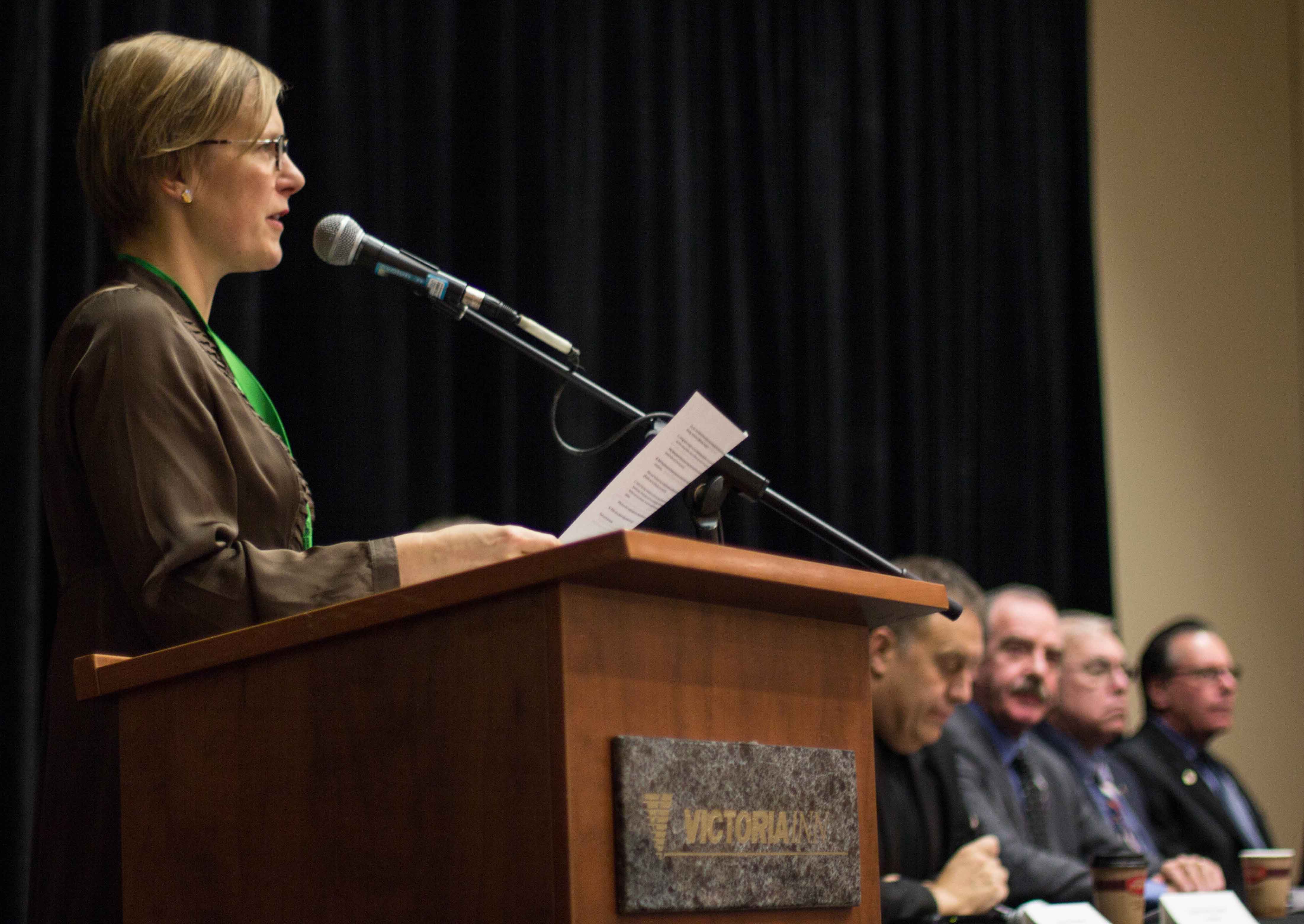
By Lynne Fernandez and Simon Enoch
In the Fall 2016 Monitor, Canadian Centre for Policy Alternatives (CCPA)Saskatchewan’s Simon Enoch penned Getting to Know Brad, introducing Canada’s most popular premier – Brad Wall – to the country. He ran down Wall’s list of “accomplishments”. What made Simon’s analysis so interesting (and at the same time, disheartening) was how Wall has rolled out such a regressive agenda while remaining so popular. He noted that the rest of Canada needed to pay attention to Wall as he was beta-testing a number of conservative policy experiments that we could see replicated elsewhere.
Note time change! Feb 9th start 6:00 pm – come for 5:30 and buy your snack and beverage of choice.
 For video of this event click HERE.
For video of this event click HERE.
Supporting Refugee Housing and Resettlement Beyond the Syrian Refugee Crisis
By Ray Silvius, Hani Ataa Al-Ubeady, Dyland Chyz-Lund, Carlos Colorado and Emily Halldorson
In this report we demonstrate the specific constellation of events, initiatives, and supports that contributed to housing refugees from Syria who arrived in Manitoba beginning in November 2015. Relative to those of other recent refugee arrivals to Canada, the ‘Syrian Case’ has been unique, insofar as a considerable amount of national attention was devoted to the matter. The arrival of Syrians has been politically polarizing–indeed it became a decisive issue during the 2015 federal election in Canada and served as a touchstone for arguments for and against immigration to Canada, in general, as well as as supportive and reactionary sentiments about the presence of Muslims in Canadian Society. Read more…..
By James Magnus-Johnston
The federal government has stated that if provinces don’t impose a price on carbon, it will impose its own price by 2018. Trudeau has stated that “if neither price nor cap and trade is in place by 2018, the government of Canada will implement a price in that jurisdiction.”
Eight out of ten provinces will be designing their own mechanism to collect and “recycle” revenues under the new “Pan Canadian Framework on Clean Growth and Climate Change.” While Saskatchewan and Manitoba have chosen not to sign for now, Manitoba Premier Brian Pallister has stated support for a carbon price. He is currently withholding adoption until an agreement is reached over long-term health care funding.
By Cameron and Janet Morrill
The need to “tighten our belts” is heard so often in the public sector, it is pretty much accepted without question. This is certainly the case for Canadian universities: actions such as raising tuition fees, cutting programs, increasing class sizes and workloads, closing defined benefit pension plans, cutting salaries, discontinuing library subscriptions, and replacing tenure track positions with casual academic staff are seen as regrettable but necessary when claims of challenging fiscal times are repeated over and over.

Molly McCracken, CCPA-MB Director moderating panel at Municipal housing event. Photo credit – Bailey Hildebrand-Russell
By Bailey Hildebrand-Russell
Cities and towns across the province are learning to work within their unique economic climates and available policy tools to deal with housing needs.
That was evident following a panel discussion with Manitoba mayors as part of Building Partnerships 2016, the Manitoba Non-Profit Housing Association’s fourth annual conference in November.
By Susan Prentice
Manitoba’s childcare system is staggering to meet the needs of parents and children, and recent signs give little confidence the new provincial government will respond effectively. Over a dozen community groups who are ready to proceed with building not-for-profit childcare spaces have had their promised provincial capital grants abruptly frozen, halting all expansion. Wait lists for childcare in Manitoba are at an all-time high, at over 15,000 names up from 12,000 just two years ago.

Artwork by Kenneth Lavallee, Blanket Project Main and Logan 2016
By Niigaan Sinclair, Tamara Margaret Dicks, Timothy Maton,
This year’s State of the Inner City Report tackles arguably the most important issue of our time: healing and reconciling Canada’s relationship with Indigenous peoples. A year and a half after the Truth and Reconciliation Commission (TRC) 94 Calls to Action were released, this research documents community-based efforts in inner city Winnipeg to implement these recommendations and more broadly break cycles of racism and colonization.
By Jim Silver
The provincial government has halted funding for Neighbourhoods Alive! This is a serious mistake.
Neighbourhoods Alive! (NA) is a provincial government program that funds community development initiatives in thirteen low-income urban areas in Manitoba, including six in Winnipeg’s inner city. In 2015/16 the program invested $4.8 million in 182 projects in urban areas with high rates of complex poverty. NA has been instrumental in bringing about much-needed positive change in these neighbourhoods.




Follow us!